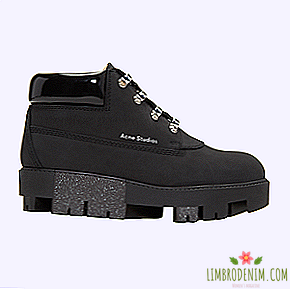Disease or self-hypnosis: Does weather dependence exist?
When the day begins with a gray sky, drizzle and puddles under your feetThe temptation to write off the bad feeling for the weather is great. However, in the International Classification of Diseases, where all known diseases are collected, the terms "meteorological dependence" or "meteosensitivity" are not. There is no scientific evidence of a direct relationship between atmospheric pressure, precipitation, wind speed and changes in the physiology of the body. Why, however, when weather changes can be unhealthy, we found out from the experts: the head physician of the Israeli medical tourism clinic LevIsrael, the highest category physician Viktor Levy, the cardiovascular surgeon Pavel Torubarov GKUZ S. Yudin DZM and -consultant of the Center for Molecular Diagnostics (CMD) of the Central Research Institute of Epidemiology of Rospotrebnadzor, Mikhail Lebedev.

What is weather dependence?
The human body is comfortable in certain conditions - in terms of favorable air temperature and atmospheric pressure, when it receives the right amount of oxygen and sunlight. Changing any of these parameters can cause discomfort, but the human body can react in different ways. Doctor Pavel Torubarov suggests comparing the reactions of two organisms: a healthy child and an adult, who already has a number of age-related changes. Both react to changes in the environment due to the same mechanisms, but the former has a much higher adaptive capacity. Therefore, a healthy child is unlikely to notice a change in air pressure or humidity, unlike an adult with chronic diseases.
Many people believe in the dependence of their well-being on the weather, without objective grounds. According to the doctor Mikhail Lebedev, the development of this or that disease with age is primary. "Weather sensitivity" may accompany the disease, but it is not it in itself - it is rather a condition with elements and a real disease, and self-hypnosis. And if a person is prone to worry a lot, his bad state of health is “superimposed” on an unstable emotional background, which increases discomfort.
Dr. Victor Levy notes that certain inconveniences when changing the weather is difficult to deny. For example, a sharp heat can significantly worsen the general state of health - due to insufficient adaptation of the body, overheating, or, for example, dehydration. But drops in atmospheric pressure and other changes in weather conditions do not affect health by themselves. Why is it that many people blame the weather for poor health? The fact is that it is better to remember those cases when the weather changed after the illness (or before it), and situations where it was just as unhealthy, but the weather conditions persisted, are quickly forgotten. This is a subjective perception, due to self-suggestion.
Why do the joints ache before the rain and want to sleep
Drowsiness and discomfort in the joints can occur regardless of weather conditions, for example, as a symptom of a particular disease - but due to the peculiarities of the human psyche, it is the cases that occurred before the rain are remembered. Victor Levy notes that psychosomatics often work: waiting for bad weather provokes unpleasant sensations in the body. And drowsiness and fatigue after a long flight with a change of time zones is much easier to associate with a change in climatic conditions than with a failure of the body's biological clock - the real cause of indisposition.
When it is going to start raining, many complain of joint pain. Pavel Torubarov notes that such "meteosensitivity" is nothing more than a reminder signal of the presence of an old injury or a chronic disease, such as arthritis. This is easy to explain: before precipitation falls, atmospheric pressure decreases, to which receptors that send signals to the brain react. The latter "reads" information, including from the nerve endings in the damaged area. Such signals are perceived as alarming - and there is pain in the “problem” place.
Another common example: before the rain often tends to sleep. In this case, with a decrease in atmospheric pressure, the amount of oxygen in the air decreases. The body lacks and thus tries to save energy. Hence the feeling of fatigue and a strong desire to lie down. But after a while the body adapts to new conditions.

What is the danger of weather dependence and what to do about it
Under the mask of "meteo-dependence" there can be various health problems: joint diseases (arthritis and arthrosis), malfunction of the cardiovascular or respiratory system, hormonal disorders (especially during puberty, menopause, pregnancy, and thyroid diseases), chronic anemia (low hemoglobin) and others. Weakness, fatigue, sleep disturbances (drowsiness or insomnia), headache, dizziness, rapid heartbeat, shortness of breath, and sudden mood swings are symptoms that are mistakenly called meteorological dependence.
Even if these manifestations are not uncommon, you should not prescribe medications to yourself: the treatment should be chosen by the doctor and directed not only to the symptoms, but also to their cause. Therefore, doctors strongly recommend not to self-test, and instead refer to the therapist and be examined - to make a general clinical blood test, as well as tests for ESR (erythrocyte sedimentation rate) and C-reactive protein (CRP), which indicates the presence of inflammatory processes.
Magnetic Storms: Should We Be Afraid Of Them?
Earth has an invisible shell - the magnetosphere. She, like armor, protects all life from solar radiation. When flares are noted on the Sun, the speed of ionized particles (the so-called solar wind) increases and the pressure on the magnetosphere rises - it seems to be compressed above the planet. This pressure drop is called a magnetic storm. Mikhail Lebedev notes that the magnetic storm has no effect on atmospheric pressure, and its effect on human health has not been studied - major scientific research on this topic has not yet been conducted.
According to the doctor, some scientists suggest that solar flares can provoke headaches, increase blood pressure, decrease performance and cause exacerbation of various chronic diseases. First of all, it refers to cardiovascular diseases - and the mechanism of such exacerbations is associated with a violation of electromagnetic processes inside the body. But even in this case, it is important to think about what is still primary - the unproved effect of geomagnetic disturbance or a disease, about which its carrier may not even suspect.
Experts agree that a healthy lifestyle with a rest and sleep regime, a balanced diet and regular but reasonable exercise, as well as low levels of stress are the best prevention of the possible effects of magnetic storms and meteorological sensitivity. In case of chronic diseases, the right decision will be planned visits to the doctor and compliance with his recommendations.

When to change the climate zone
Allergies and diseases of the respiratory system (chronic bronchitis, bronchial asthma) are not associated with weather changes - but they largely depend on the state of the environment. For example, the presence in the air of microparticles of pollen, tar of tobacco smoke, dust, causing irritation in the bronchi. If a specific irritant, such as birch pollen or poplar fluff, it is enough to exclude contact with it. In the case of allergy to street dust, which is constantly in the air, to completely cure bronchitis, most likely, will not work, even changing their place of residence. But those who suffer from bronchial asthma, a change in the cold and humid climate to a warm and dry one will benefit and markedly improve the quality of life.
For patients with psoriasis, living in an area where there are more sunny days than overcast days will be the best option: insolation improves the condition in the presence of various skin diseases. By the way, according to Victor Levy, the lack of sunlight is one of the factors for the development of depression, so staying in warm countries can be a good help for treatment. But before you pack your bags, you should discuss the need to move with your doctor and get tested, weighing all the pros and cons. Changing the climate zone is always a test for the body, because it needs time to adapt to new, unusual conditions.
Photo: kanate - stock.adobe.com, wittayabudda - stock.adobe.com, dzimin - stock.adobe.com, lucato - stock.adobe.com





